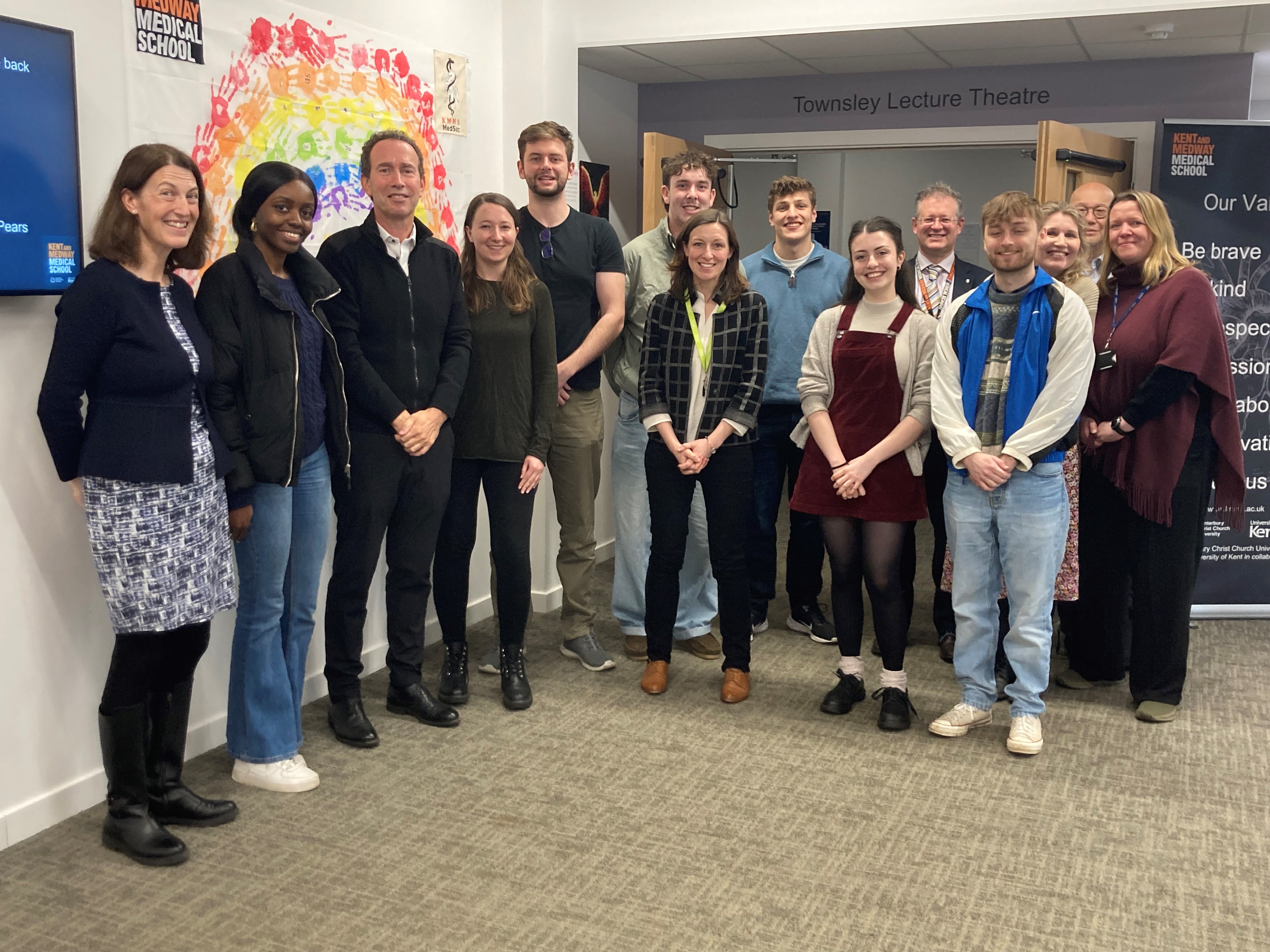By Dr Emily Lau
I have been involved in the University of Kent’s Student Philanthropy module for almost three years now and no matter how we talk about it when students are choosing their electives, the first question we always get asked in week one, is ‘But is it actually real money?’. While the module itself is about far more than just financial giving, the question remains an important one and links more widely to pedagogy – how can we give students real life, experiential learning that allows them to think about real people and real communities? I believe this module is an important example of how we can improve student engagement by allowing them a more authentic connection with the impact of people, charities and philanthropy that leads them to reflect about their own motivations and practices and gives them a deeper understanding of their university and local community.

The basis of the module, which is entitled Learning by Giving – Philanthropy in Action, sees students receive information about a number of local organisations seeking funding before spending each week of the module researching the local context and need before coming to a decision as a group about where the money should go. The funding pots were donated to the University by humanitarian David Jamilly and the Pears Foundation, funder of the Kent and Medway Medical School and Centre for Philanthropy. The module is run in partnership with Kent Community Foundation, who administer the funding and deliver several workshops to students, providing insight into the charitable sector, funding processes, and assessing the needs, strengths and challenges of charitable giving. Students also heard from several charities, including Catching Lives, Pilgrims Hospice and Essex and Herts Air Ambulance Trust. Each outlined their work and the issues that they are trying to address locally. In the final weeks the student group all present individually on the organisation they personally would like to give the money to, and then go through a longer group discussion where they must make their group decision.
“Being on the Philanthropic Studies MA programme really has been quite life changing. I found it challenging, rewarding and really the most wonderful experience.”
Delivered by distance learning, Kent’s MA Philanthropic Studies enables you to balance your professional development with your personal and work life. To find out more, email philanthropy@kent.ac.uk or visit our site now.
This year two student cohorts across the University of Kent chose very different organisations to receive the money based on a series of discussions around need, sustainability of organisations and the perceived visibility of causes. For example, students from the Medical School at the university chose a small, local children’s mental health charity after debating what came under core NHS funding and where the third sector and communities could play a preventative role, addressing social problems before they became something that required medical interventions. The groups from Sociology, Social Policy and Social Research prioritised women, refugees and asylum seekers as causes that did not always receive public attention or funding, this guided their decision-making. Every year the module runs, the outcome is different, and students are careful to research the community context and the realities for small organisations.
Some of the most important learning about leading an experiential learning module such as this one is captured in an article written by myself and Dr Ali Body and published last year: Teaching student philanthropy—Possibilities for practice within the UK higher education sector
The module has received additional funding from the Pears Foundation and will now run across five cohorts at the University of Kent, bringing in multidisciplinary voices from Law, Politics and Criminology. The funding also allows us to work across Higher Education, exploring other experiential approaches and how to grow them. At a time where reliance on charity, voluntary action and community organisations seems critical, and when students call out for more engaged real-world experiences, we hope we are supporting the next generation of philanthropists and change-makers.
